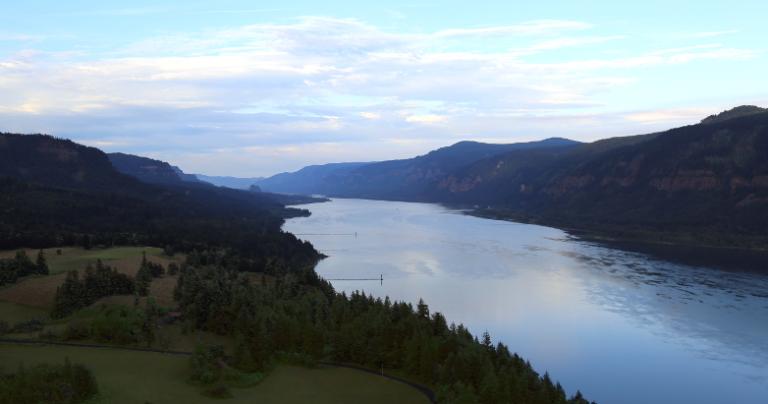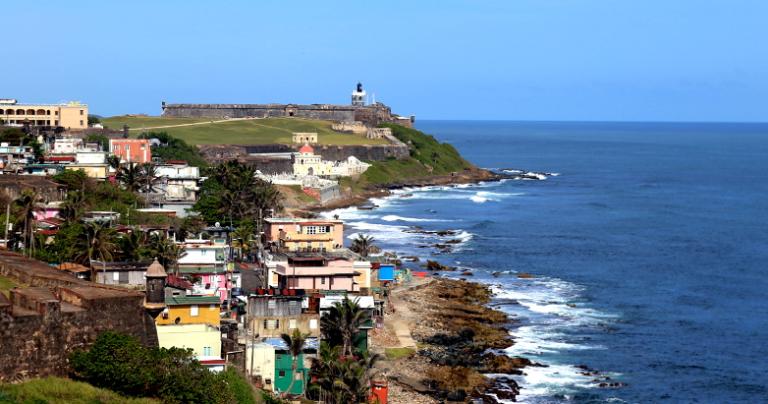As I write this on Thursday, the Columbia Gorge – where I was just two weeks ago – is on fire. The fire was set by careless teenagers and it is exacerbated by decades of human interference in the natural cycle of fire and regrowth in Western forests.
Houston is still trying to bail out from Hurricane Harvey, while Irma has flattened Puerto Rico and by the time you read this, will be wreaking destruction on Miami. No one really knows how badly Florida will be damaged, but it won’t be light.
Meanwhile, Jose is strengthening in the Atlantic and may hit the same spots again, and Katia is growing in the southern Gulf.
There are more wildfires in Montana, British Columbia, Greece, and Portugal. Last month there was a wildfire in Greenland. There are deadly heatwaves in Europe and California, and record flooding in South Asia.

It is unlikely that climate change caused all these events. It is highly likely climate change made them stronger and more numerous. Climate science is complex, which is hard for deniers who insist that if it’s not black and white it’s not real. But climate change is not the subject of this post.
I’ve seen numerous comments from Pagans and Christians alike calling all this bad weather “punishment” for everything from electing gay people to public office to driving oversized pickup trucks. It’s a natural human impulse to look for meaning in tragedy, and if that meaning puts the blame on people we don’t like, so much the better. Thankfully, most of us understand there is no correlation between human morality and natural disasters.
That doesn’t mean Nature didn’t do it on purpose.
Does a hurricane have consciousness? I don’t know. Most people would say no. But a hurricane most definitely has agency – the ability to act according to its nature and desires. You can argue that a hurricane has no desires, but it clearly has a nature: strong winds and massive rains, spawning thunderstorms and tornadoes. It leaves chaos in its wake.
A hurricane does what it wants to do and it does not care that it destroys lives and livelihoods.
Want to work magic to stop a hurricane? Go ahead. You’ll find out just how strong you are. You might be able to protect yourself, but you’re not going to stop it.
So Irma bears down on Florida, which doesn’t have the infrastructure to evacuate everyone even if they wanted to.
It’s easy to say “well, people shouldn’t live there.” But there is no place on this continent where Nature doesn’t at least occasionally try to kill you. The North has snow and ice. The West has fires, earthquakes, and volcanoes. The South and Midwest have tornadoes. The Atlantic and Gulf coasts have hurricanes. Still, people have lived here for thousands of years and we will continue to do so.
We can live here safely when we respect Nature. But we don’t respect Nature, at least not collectively. And we don’t think ahead.
There is nothing we can do to shrug off a Category 4 Hurricane like we shrug off a spring thunderstorm. With enough money, you can build individual structures that will withstand pretty much anything. With enough money. But building Nature-proof cities and towns would require an effort and expense not too much less than building on Mars. We’ve chosen to take our chances, live for today, and rebuild when it’s necessary.
That’s what the rest of Nature does.
Those beautiful Western forests are supposed to burn. Or rather, they’ve been burning for so long they’ve evolved to survive the fires. Pine cones remain sealed until they encounter the temperatures found in a fire. Then they open and re-seed the forest floor.
But forest fires hurt forest industry profits, so fires are suppressed and fuel stocks grow. Then when fires do occur, they’re bigger and more devastating than they would be if they were allowed to burn naturally and regularly.
Are forest fires conscious? Do they have desires? They certainly have a nature: to consume all organic matter in their paths.
Whether the destructive forces of Nature are conscious or not is a good topic for conversation around a campfire and several bottles of wine. The easier question is whether they are persons. The more urgent question is whether we will interact with them as persons. Will we show them the honor and respect that persons deserve?
If we do, we will be more careful where we choose to live. The flood plain belongs to the waters – we will leave it to the waters. The fire has a much right to the timber as we do – we will let it take its share.

Not all human persons mean us well, or are willing to let us live in peace – we all have locks on our doors. Some of us have alarms and keep weapons. Likewise, some non-human persons are unwilling (or unable) to let us live in peace. And so we build stronger houses, we run when we can, and we hide when we must.
And in doing all this, we come to a very pagan (small p intentional) truth: humans are not the center of the universe. We were not placed on the Earth, we grew out of the Earth. We are strong and determined (though not always wise) but there are other persons who are stronger and more determined than us. We challenge them at our peril.
My heart aches for the burning of the Columbia Gorge, even as my head recognizes it was long overdue. My compassion – and my tangible assistance – goes out to the victims of the hurricanes, even as I realize there will always be hurricanes in the Atlantic.
Humans have been attempting to gain mastery over Nature since the discovery of fire. We have made amazing progress. But times like these remind us that we will respect the power of Nature, or we will suffer the consequences.
















